Nothing Found
Sorry, no posts matched your criteria
Sorry, no posts matched your criteria
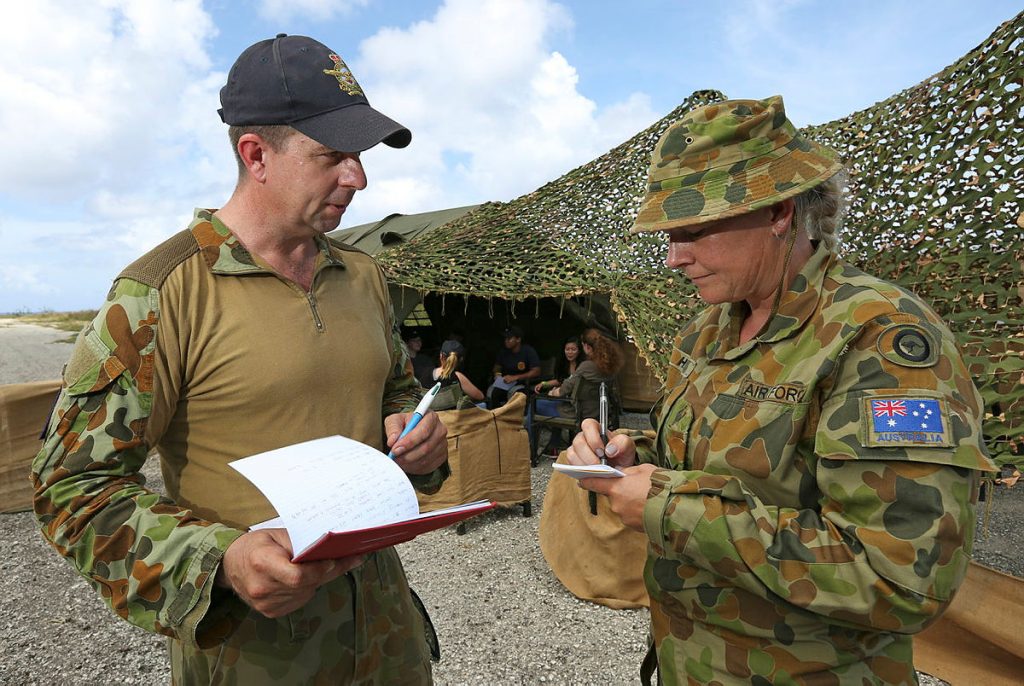
On Wednesday in New York, the UN Security Council held its annual open debate on women, peace and security (WPS). The theme of this year’s debate was ‘from theory to practice’. The first of what are now 10 Security Council resolutions on WPS was passed more than 20 years ago, but there remain ongoing issues with translating them into concrete results. In the 2016 debate, the German representative eloquently articulated the problem, saying: ‘The shortcomings in the implementation of the women and peace and security framework are due not to a lack of words, but to a lack of action.’
In his remarks to the Security Council this week, UN Secretary-General Antonio Guterres spoke soberly about international regression on the WPS agenda:
Conflicts are raging. Tensions are rising. Coups are erupting. Authoritarianism is on the march. The nuclear threat has mushroomed. Climate chaos is inflaming security challenges. And mistrust is poisoning global politics—weakening our ability to respond.
The figures speak for themselves on the dire state of our world … The grim backdrop gives renewed urgency to efforts to ensure women’s full and meaningful participation in peace and security. Twenty-three years after this Council adopted resolution 1325, women’s participation should be a default, not an afterthought.
But that is not the case.
Australia waited several years for the release of its second national action plan on WPS, a whole-of-government policy document with implementation responsibilities for the Department of Home Affairs, the Department of Defence, the Australian Federal Police and other agencies. Although the first plan was produced by the Office for Women, in the Department of the Prime Minister and Cabinet, the second one came from the Department of Foreign Affairs and Trade, perhaps because it was released at a time when the minister for women was also the minister for foreign affairs and trade.
During the second plan’s development, its monitoring and evaluation framework received extensive criticism from civil-society organisations, but the final version was unchanged. Regardless, two years on from the delayed release, there has been no public reporting on the plan’s implementation.
Defence’s implementation plan was developed some time ago and is overseen by a passionate and well-trained cohort of gender advisers and gender focal points across the organisation.
As part of the 2023 defence strategic review, Defence’s Gender, Peace and Security Directorate moved from the Joint Capability Coordination Division into the newly formed Defence People Group under Lieutenant General Natasha Fox’s leadership. But as the organisation’s gender advisers and gender focal points know, WPS is not just a people issue. The issues raised in the culture reforms bought about by the Broderick reviews are often confused with WPS and the tasks specified in the resolutions, such as having a gendered understanding of conflict, protecting women from conflict-related sexual violence, and including local women in security sector reform; disarmament, demobilisation and reintegration activities; and peace negotiations and post-conflict reconstruction.
The Security Council, which promulgates the resolutions, is not the UN Human Rights Council; it is the premier organ of the UN that discusses matters of international peace and security. The WPS agenda is a matter of international security that needs to be addressed in Defence’s joint preparedness and operational cycles, regardless of any overlap with gender equality and human rights.
The defence strategic review has shifted the geographic focus of national defence. It explains that the primary area of military interest is the Indo-Pacific, ‘encompassing the north-eastern Indian Ocean through maritime Southeast Asia into the Pacific’. While some analysts have been occupied with discussions that focus on the need to increase air and maritime assets within the limited resources described in the review, it also placed significant emphasis on the need to continue to strengthen whole-of-nation efforts, which has long been the space in which WPS sits.
In Ukraine, we have seen Russia’s extensive use of sexual and gender-based violence against Ukrainian women from 19 to 83 years old. I predicted such behaviour when analysing the decriminalisation of domestic violence in Russia with Valerie Hudson, several years before the war with Ukraine began. That’s because, internationally, women’s security is the best indicator of national security. Ukrainian women’s organisations have been using the WPS agenda to improve implementation, including by increasing diverse women’s participation in the decision-making process in the security and defence sectors.
The Ukrainian experience should prove that the deployment of Australian gender advisers to the non-international armed conflicts in Iraq and Afghanistan will have transferable lessons in international armed conflicts and regions outside the Middle East.
Many countries in the Indo-Pacific have incredibly gendered societies, where different sexes have very different roles in society, gender inequality is rife, and sexual and gender-based violence may be used as a tactic of war. Under the Rome Statute of the International Criminal Court, and our own Criminal Code, Australia has legal obligations to report instances of sexual and gender-based violence when it is being used in a widespread and systematic way, to enable investigations and prosecutions for crimes against humanity and war crimes to occur. This needs to be incorporated into operational design and conduct.
As the Australian defence organisation refocuses to address increasing ‘economic, military, strategic and diplomatic’ competition ‘interwoven and framed by an intense contest of values and narratives’, the WPS agenda must not be relegated merely to the personnel unit. Bringing WPS from theory to practice is about ensuring that the tasks specified in the Security Council resolutions are included in all aspects of defence preparedness, planning and operations.
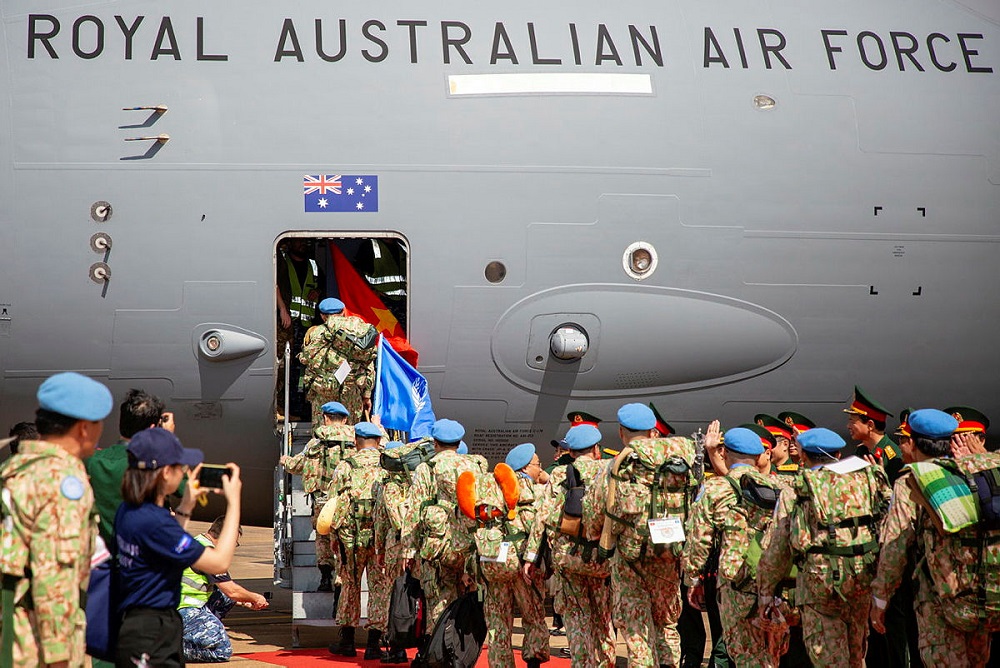
The unclassified version of Australia’s defence strategic review only mentions peacekeeping directly twice. It refers to Australia’s ‘enviable international reputation as a capable country in military, peacekeeping, and humanitarian assistance and disaster relief operations’ and acknowledges that climate-change-driven disasters and mass migration could foster conflict and increase our region’s demand for peacekeeping. It seems to imply that peacekeeping has been and will remain a key activity for the Australian Defence Force, but Australia’s current commitments to peacekeeping are minimal, and the review provides no details on Australian plans to participate in future peace operations.
If Australia wants to meet the review’s recommendations that it meaningfully contribute to the collective security of the Indo-Pacific and to the maintenance of the global rules-based order, then it needs to seriously consider its role in UN peace operations.
Australia has a proud history in peacekeeping. In 1947, Australians were deployed to the Dutch East Indies (now Indonesia) as part of the UN’s first-ever peacekeeping effort and have been engaged in peace operations around the world every year since. The zenith was reached in the late 1990s and early 2000s with Australia leading peacekeeping efforts in Bougainville (1998–2003), East Timor (1999–2000) and Solomon Islands (2003–2016). The experience of these deployments has made the ADF the security provider of choice for many countries in the region.
However, the 11 September 2001 terror attacks in the US and the subsequent wars in Afghanistan and Iraq diverted Australia’s political and military focus. Peacekeeping efforts dropped off and have remained low. At the 2014 UN leaders’ summit on peacekeeping, Australia declined to commit to contributing more peacekeepers, instead offering strategic airlift support to the UN for crisis situations.
Once seen as a regional peacekeeping leader, Australia now lags behind other countries in the Indo-Pacific. At the end of July 2023, only 26 Australians were deployed as UN peacekeepers, mostly in advisory roles. In contrast, on the same date, Indonesia was contributing 2,710 peacekeepers to UN missions, China 2,277, Cambodia 879, Malaysia 866, Sri Lanka 550, South Korea 542, Fiji 332, Thailand 295 and Vietnam 269.
Australia’s lacklustre engagement is regrettable. Peacekeeping could play an important role in protecting the collective security of the Indo-Pacific and in maintaining the global rules-based order. Collective security relies on cooperation and Australia can use peacekeeping to build that, deepening key relationships in the Indo-Pacific in the process. Many of Australia’s key partners in Asia and the Pacific, such as Indonesia, Malaysia, South Korea and Fiji, are heavily involved in peace operations and keen to work with Australia in the field.
As an example, in 2019, Australia attempted to co-deploy with Fijian peacekeepers in the Golan Heights as part of the United Nations Disengagement Observer Force. It also announced its intent to co-deploy with Indonesian peacekeepers for the first time, signalling a ‘new chapter’ in the Australia–Indonesia partnership. While the work with Fiji was blocked by Syria and cooperation with Indonesia was limited to delivering pre-deployment training, these were good steps towards using peacekeeping more actively to build and maintain strong strategic partnerships with Australia’s neighbours. Such initiatives are opportunities to deepen cross-cultural exchange, build meaningful person-to-person relationships among military and security actors, and develop expertise in working with partner countries.
Peacekeeping efforts like these also help decision-makers move beyond an enemy-focused culture and stay focused on their ultimate goal—peace. As one former Australian peacekeeper noted, ‘Peacekeeping requires patience, respect and a strategic perspective that prioritises long-term stability over short-term results.’ Taking this measured approach enhances Australia’s ability to respond to the diverse security challenges it faces.
Engagement in UN peace operations clearly signals Australia’s investment in the global rules-based order and its most vital institutions. When the 2016 defence white paper identified ‘the stability of the rules-based global order’ as essential to Australia’s security and prosperity, it recommended support to UN peace operations as one way for Australia to protect this order. The UN is more important than ever. With gridlock in the Security Council and waning support from former supporters, the UN needs Australia to better contribute to peace operations to show support for the UN itself. Increased engagement in the UN’s flagship activity is vital to strengthening the organisation, and ultimately the international norms and values that it aims to protect.
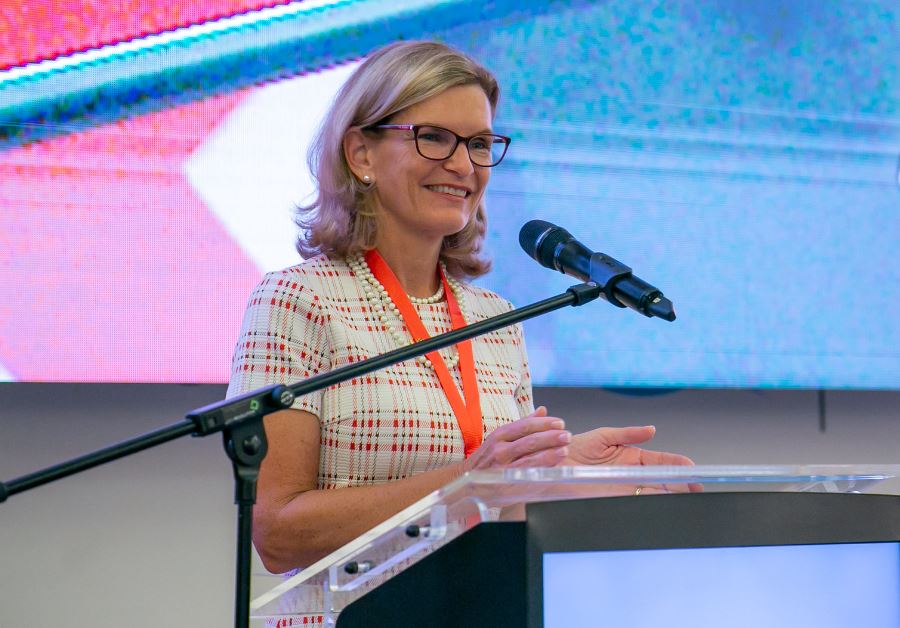
On 29 September, member states of the International Telecommunications Union voted to elect Doreen Bogdan-Martin as the organisation’s next secretary-general. Bogdan-Martin—a US national who’s served in the ITU since 1994—was in contention for the top job with Rashid Ismailov, a former Russian deputy minister and executive at Huawei, Nokia and Ericsson.
The election was overshadowed by Russia’s ongoing collision course with the international rules-based system. And the outcome largely reflects the amount of goodwill Russia still carries among the UN membership. The Russian candidate received 25 votes, while Bogdan-Martin won with 139 of the total 172 votes cast. When she takes office on 1 January 2023, she will be the ITU’s first female secretary-general.
Framing the election in terms of geopolitical symbolism, however, does an injustice to the winning candidate’s expertise and competence. It also miscasts the role of the ITU.
In recent years, a sentiment has emerged that China is outpacing the US, Australia and like-minded countries in efforts to set international standards for emerging technology.
Much of the recent commentary has placed the election of ITU secretary-general in the context of internet governance against the backdrop of technology decoupling and the alleged emergence of various internets. Multi-stakeholder governance is pitted against authoritarian control, with the principles of an open, free, global, interoperable, reliable and secure internet at stake. Russia and China want the ITU to take up a role in internet regulation, whereas the US and its partners prefer to keep this policy area out of the organisation’s remit. But this is too narrow a spectrum through which to see the ITU’s role and capabilities.
The mandate of the ITU is to set regulations and technical standards for telecommunications: in the late 1890s, it did so for postal services, later for telegraphs and telephones, and today for the interoperability of internet-based communications. The organisation facilitates the global management of the radio-frequency spectrum and satellite orbits, oversees the development of standards for information and communications technologies with an eye to interoperability, and delivers capacity building to help close the digital divide and drive digital transformation in the global south.
To properly assess the impact of the ITU’s work, and in particular the issue of interoperability, it’s important to understand its internal processes. Initiatives for standards are not dictated by the praesidium. Although they require the secretary-general’s consent to proceed, they are generated bottom-up through proposals by member states, in consultation with private industry. Successful proposals are typically years in the making and involve deeply technical debates among experts, and there are many procedural steps and consultations before a consensus agreement is reached.
While Huawei’s proposal to the ITU in 2020 for a new internet protocol definitely rocked the boat, many in the technical internet community don’t expect it to come to fruition. Significant uptake of any proposed standard is dependent on broad global support. When consensus is reached, however, agreement texts are set in stone, and it will be costly to change or refrain from observing them.
If there’s genuine concern about the direction the ITU is taking or the direction of internet governance more broadly, liberal democratic countries, Australia included, may need to change course altogether.
They will need to foster a proactive rather than defensive agenda that includes more concerted participation of public- and private-sector representatives in the ITU’s technical working groups.
Also, Western states’ preference for internet, cybersecurity and technology standards to be managed through alternative forums, such as the Internet Engineering Task Force and the Institute of Electrical and Electronics Engineers (which tend to be more industry driven), means they have to make a greater effort to be inclusive and ensure these forums tangibly benefit those in emerging economies too.
Simply dismissing and pushing back against an ITU role in internet, cybersecurity and tech governance won’t cut it. The ITU is a known and generally trusted entity in the global south.
Unlike in countries such as Australia, cybersecurity, internet governance and emerging technology professionals in developing nations have largely come from the telecommunications sector. This includes countries such as India—a close Quad partner—and most Pacific island nations. Many have personally benefited from the ITU’s capacity-development work.
More strategically, the ITU is a forum in which all member states have a vote—by default. This means government departments don’t have to compete for a seat on the table and invest time and scarce resources in other, potentially seen as parallel, forums. Across the board, emerging economies tend to prefer a stronger lead role for the UN secretariat and UN agencies in supporting digital development and cybersecurity.
Is the election of Bogdan-Martin irrelevant, then? The reality of managing international organisations is that a secretary-general is more of a secretary than a general. They have influence over agendas and processes—which is important—but they will have to work through an administration with seniors representing all geographic areas. More than that, no leader of an international organisation can allow themselves to be seen as favouring national positions; that would instantly undermine their credibility. The same has applied for the outgoing secretary-general for the past eight years, China’s Houlin Zhao.
In her first statement as secretary-general-elect, Bogdan-Martin expressed her belief in ‘the power and potential of connectivity to drive economic growth and transform healthcare, education, employment, gender equality and youth empowerment’ and refers to digital technologies as ‘crucial to efforts to meet’ the UN Sustainable Development Goals.
This may be a first sign of her priorities and interests and reflects her recent experience directing the ITU’s development work.
Her election can become a significant milestone if it serves as a turning point for reigniting the enthusiasm of the US and its allies and partners for the ITU’s work. However, significant efforts by US President Joe Biden’s administration will be required to instil lofty ambitions, such as those articulated in the Declaration on the Future of the Internet, into the proceedings of the various ITU-run technical working groups and to get stakeholders in the telecoms, cyber and technology industries sufficiently interested in articulating, promoting and advocating liberal norms and democratic values.
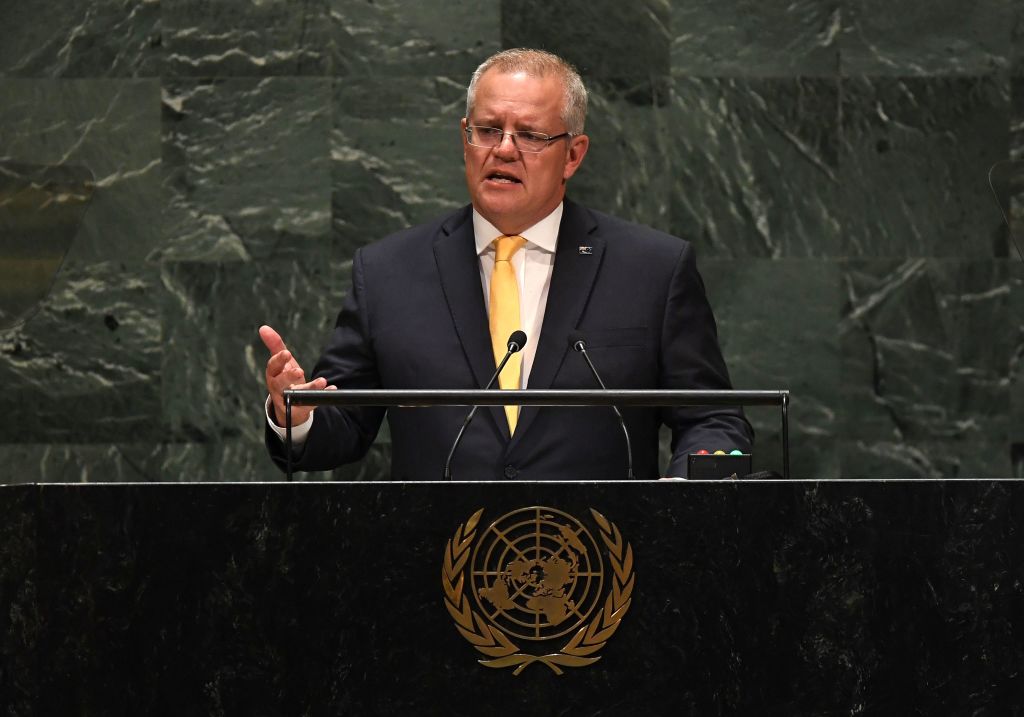
‘We should avoid any reflex towards a negative globalism that coercively seeks to impose a mandate from an often ill-defined borderless global community. And worse still, an unaccountable internationalist bureaucracy. Globalism must facilitate, align and engage, rather than direct and centralise.’
— Prime Minister Scott Morrison, October 2019
‘Covid-19 is a shared crisis—a reminder that many problems are best solved or, indeed, can only be solved through cooperation. At the heart of successful international cooperation is the concept that each country shares, rather than yields, a portion of its sovereign decision-making. And in return, each gets something from it that is greater than their contribution.’
— Foreign Minister Marise Payne, June 2020
The prime minister and foreign minister offer opposed, puzzling facets of Australia’s Liberal Party.
The puzzle—reaching towards paradox—is the way the Libs can mock multilateralism and scorn the United Nations. Twice in the past 20 years, Liberal governments have ordered broad cost–benefit reviews of what the UN system means for Australia.
The party has a proud ability to walk and talk liberal internationalism. The Liberals know deeply why Australia wants and needs a rules-based international system. Yet when it comes to the instruments of that system, the case for the negative is strong.
The Liberal posture for 30 years has been as a party that thinks, feels and acts on a vision of national-interest bilateralism: Australia will only bother with the UN when clear national interests are served.
The two strands of Australian political opinion on the UN throughout the Cold War were Evatt Enthusiasm and Menzies Scepticism. This wasn’t a party-line division: many Libs were UN enthusiasts; plenty of Laborites were realist, balance-of-power sceptics.
Under Prime Minister John Howard, a third strand emerged: rejectionism that doesn’t see the UN as a core Australian interest. In office, Howard’s pragmatism meant he easily adopted multilateral solutions, but his policy instincts and language reflected his mental tic about the UN. The tic became a Liberal habit of mind, and Howard’s version of himself in retirement.
In Howard’s autobiography, there’s no sign of the leader willing to sign the landmine ban treaty over the objections of Australia’s Defence Department; his chapter ‘The liberation of East Timor’ gives only a grudging nod to the UN’s central role in one of his proudest achievements.
Instead, Howard’s memoir warns against ‘the dictates of multilateral bodies’, ridiculing those ‘with an almost childlike faith in the processes of the United Nations’. ‘When it comes to the crunch on really big issues’, he argues, ‘multilateralism usually falls short’.
The call is for ‘a selective approach to the multilateral agenda’ while focusing on bilateral relationships as ‘the basic building block’, which was the framework of the Howard government’s 1997 foreign policy white paper:
Australia must be realistic about what multilateral institutions such as the United Nations system can deliver. International organisations can only accomplish what their member states enable them to accomplish. If the reach of the UN system is not to exceed its grasp, it must focus on practical outcomes which match its aspirations with its capability.
Where Menzies Scepticism makes the Libs scratchy and itchy, Howard Rejectionism causes the party to gnaw and gnash.
The 2000 cabinet records released on 1 January by the National Archives of Australia show the gnaw-gnash habit being formed.
Howard’s cabinet pondered whether a seat on the UN Security Council was worth the effort. Maddened at UN committees’ treatment of Oz, cabinet in March 2000 ordered a report on how to push back and change the UN system.
The 120-page review of the UN committee system as it affects Australia went to cabinet in August 2000. While committed to the UN’s human rights and refugee frameworks, ‘Australia has had long-standing concerns about their focus and manner of operation’, the submission said. UN committees were guilty of relying on the views of non-government organisations rather than government reports.
The review trigger was an ‘unsatisfactory’ report on Australia by the UN Committee on the Elimination of Racial Discrimination. And Canberra was facing other UN committees on ‘domestically contentious indigenous, asylum seeker and other issues’.
Cabinet decided the UN human rights treaty committee system needed a ‘complete overhaul’. The government would adopt ‘a more robust and strategic approach’. Robustness generated plenty of headlines in 2000: UN committees would only be allowed to visit Oz if there was a ‘compelling’ need; Australia wouldn’t sign the protocol to the Convention on the Elimination of All Forms of Discrimination against Women because of its new complaints procedure (acceptance of the protocol happened in 2009).
The Labor opposition ran the line that the Liberals were doing a UN ‘dummy spit’. Rather than spitting, though, cabinet was gnashing. See that in a submission in September 2000 on a possible bid for a seat on the UN Security Council in 2007–08, considered when Howard returned from a UN visit.
Cabinet agreed Australia would express interest but decide on whether to ‘proceed with a firm candidacy’ in 2002. Taking office in 1986, Howard inherited the previous, ultimately unsuccessful bid for a seat in 1997–98, and that defeat rankled. The Department of Foreign Affairs and Trade argued for another quest:
Membership of the elite club at the apex of international multilateral affairs brings particular benefits. Most especially, Security Council membership maximises national leverage both before and beyond the actual term served. This enhanced projection of Australia’s international role may be brought to bear on the full range of national interests.
The Department of the Prime Minister and Cabinet opposed the bid, emphasising the political costs of another unsuccessful candidacy. Factors weighing against an Oz bid were ‘our poor level of representation and support in Africa’, the potential for Australia’s natural policy positions to ‘put us at odds with influential countries or groupings’, the ‘chronic unreliability of voting commitments’, and the benefits of the seat not being worth the costs and resources of the campaign.
PM&C knew the mind of its master. Rejectionism prevailed. Australia ultimately scrapped that Security Council bid.
When Morrison gave his ‘negative globalism’ speech in 2019—‘international engagement will be squarely driven by Australia’s national interests’—he again ordered DFAT to do ‘a comprehensive audit of global institutions and rule-making processes where we have the greatest stake’.
Payne’s speech in praise of international cooperation and multilateralism reflected the audit’s conclusions: ‘Australia’s interests are not served by stepping away and leaving others to shape global order for us.’ Her calm meditation was aimed at persuading her own party.
The scratching and gnashing will go on.
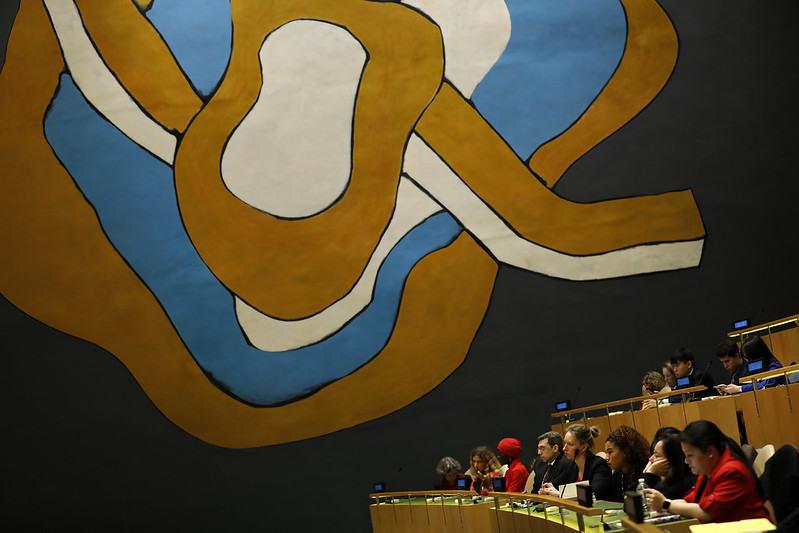
As the nature of war has changed in recent decades to involve proportionally more civilians, and internal conflicts continue to tear nations apart, we cannot achieve sustainable peace without involving women more closely in preventing and resolving violence.
That means addressing gender inequalities.
This year marks the 20th anniversary of UN Security Council resolution 1325 on women, peace and security.
Unanimously adopted on 31 October 2000, resolution 1325 reaffirms the important role of women in the prevention and resolution of conflicts, peace negotiations, peacebuilding, peacekeeping, humanitarian responses and post-conflict reconstruction. It also stresses women’s ‘equal participation and full involvement in all efforts for the maintenance and promotion of peace and security’.
The resolution was born out of the recognition that in the second half of the 20th century the nature of conflict was changing. Conflicts increasingly involved civilians as well as combatants, and intra-state and communal conflict became more common. We also learned that women were disproportionately affected by violence, including sexual violence, in conflict situations. Women’s vital role in peace negotiations wasn’t recognised and there was little consideration of women’s participation and decision-making being critical to recovery in a post-conflict settings.
The UN secretary-general’s most recent report on women, peace and security highlights that while the WPS agenda has evolved over the past 20 years, there is still much to be done.
Secretary-General Antonio Guterres observes that we live in a world where women still face exclusion from peace and political processes; where attacks against women, human rights defenders, humanitarians and peacebuilders continue to rise; and where the impacts of Covid-19 risk undermining progress made towards gender equality. Also striking is the report’s recognition that there is a strong correlation between gender inequality and conflict risk.
We know that when girls have access to quality education, when more women are in positions as key decision-makers and participants in all stages of political processes, and when women are economically empowered and live without threats of violence and harm, their communities are more economically prosperous, stable and secure.
Put simply, we cannot achieve sustainable peace and security for all without addressing gender inequalities.
In places with ongoing conflict, we must also redouble our efforts to engage women. The Council on Foreign Relations’ recent report Women’s participation in peace processes notes that between 1992 and 2019 women constituted, on average, 13% of negotiators, 6% of mediators and 6% of signatories in major peace processes around the world.
While these statistics are sobering, the counter-factual—what happens when we include women in peace processes—is worth reflecting on, not least for the hope it offers.
The International Peace Institute has found that when women participate in peace processes the resulting agreements are 35% more likely to last at least 15 years. When there’s participation by civil society groups, including women’s rights organisations, peace agreements are 64% less likely to fail.
Here in the Indo-Pacific region, we have seen an increased focus on the WPS agenda as a framework for addressing drivers of conflict and instability, as well as new and emerging threats to security.
In Australia, we introduced our first national action plan on WPS in 2012 and we’re in the process of developing our second. In addition to the action plan, we have increased our focus on WPS through enhanced coordination across defence, foreign policy, humanitarian and development programs. Our defence force has worked to increase the number of women in its operations and provide training for gender advisers. We can be proud of Australian women like Major General Cheryl Pearce who commands the UN peacekeeping force in Cyprus.
Australia has recognised the importance of building a deeper understanding of what drives radicalisation to violence, and of the role of women and girls in terrorist organisations. We have played a leading role in mainstreaming gender into policies for countering violent extremism through the Global Counter-Terrorism Forum. As co-chair with Indonesia of the CVE working group, we have developed practical guidance to inform effective policy and programming.
ASEAN issued its first joint statement on WPS in 2017 and has been making important progress on advancing its commitments ever since. We are encouraged by interest in developing an ASEAN regional action plan and look forward to opportunities for furthering regional collaboration and learning.
Australia is committed to hosting the second ASEAN–Australia WPS dialogue as soon as possible. This will build on the successful dialogue held in 2018, when regional stakeholders came together to share lessons and enhance cooperation on implementing the WPS agenda.
Now, of course, our region is confronting one of the greatest challenges, in Covid-19, to our shared prosperity, stability and security in over a century. As Guterres remarked, Covid-19 has exacerbated inequalities, including gender inequalities.
But continuing inequalities are by no means inevitable. We have evidence of what works to safeguard women’s rights in the aftermath of a crisis. Indeed, the four core pillars of the WPS agenda—participation, prevention, protection, and relief and recovery—provide an important framework for addressing the challenges of Covid-19.
In responding to the crisis, Australia recognised immediately the need to maintain a focus on gender equality and that the WPS framework is a practical tool to enhance our response.
Under the Australian government’s Partnerships for Recovery Strategy, we provided additional support to UN Women for its Global Facility on Women, Peace and Security to maintain activities on countering violent extremism, supporting women in peacekeeping operations, strengthening leadership of young women, and promoting cooperation and knowledge-sharing among diverse stakeholders on the WPS agenda.
Adopted in 2000, it was the first international collective statement to recognise the disproportionate impact of conflict and crises on women and the importance of their role in maintaining peace, stability and security. Now, 20 years later, in the midst of this current global crisis, we need to remember why an inclusive approach to sustainable peace and security is important and apply whole-heartedly the lessons learned from the last two decades of implementing this agenda.
For Australia’s part, we are committed to working with others to drive greater awareness of the agenda as a relevant and practical tool in our efforts to ensure a prosperous, stable and secure region.
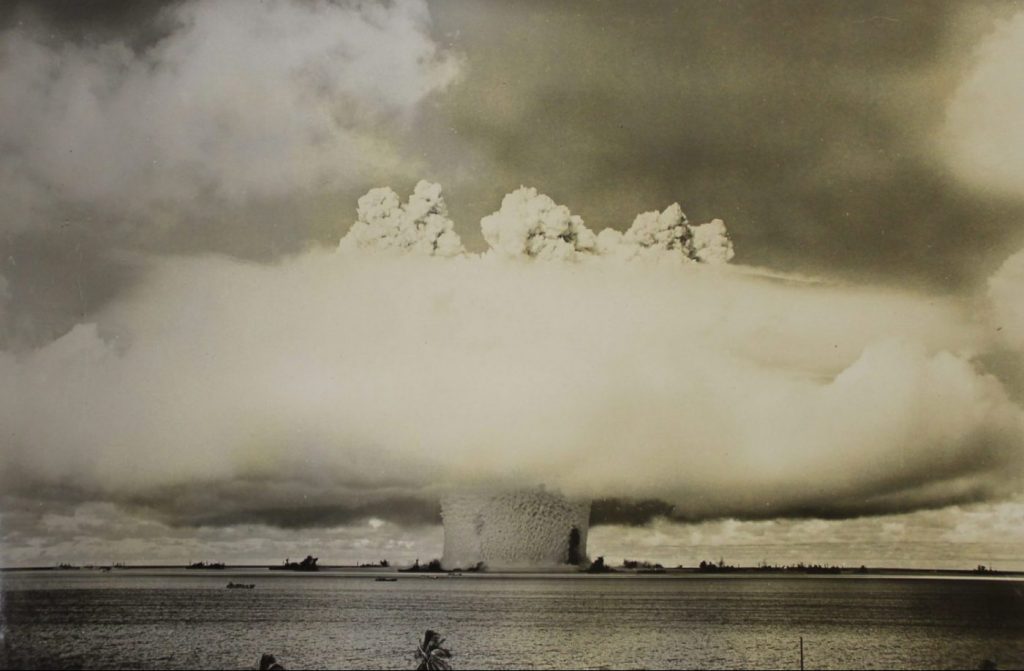
Amid the nightmare of a global pandemic and the crumbling pillars of nuclear arms control, the leadership of one of the few stars in the nuclear firmament still shining bright is due for vote in Vienna on 25–27 November.
The Comprehensive Nuclear-Test-Ban Treaty is a curious beast. When negotiations were stuck in the fossilised Conference on Disarmament in Geneva, Australia led the rescue effort by taking it for adoption to the UN General Assembly in 1996. Uniquely among arms control treaties, if not all treaties, it’s fully operational without legally having entered into force. It’s been signed by 184 countries and ratified by 168. Annex 2 lists 44 countries whose ratifications are required for entry into force. Of the 44, China, Egypt, Iran, Israel and the US have signed but not ratified. India, North Korea and Pakistan have not signed.
The prospects of all eight holdout ratifications happening in my lifetime are nil, and it’s a waste of time and effort to worry about it beyond ritualistic reaffirmation. The formula might have been deliberately designed to frustrate the treaty’s entry into force. The standard formula specifies the number of ratifications needed followed by the number of days to a treaty coming into force. Thus with the 2017 Treaty on the Prohibition of Nuclear Weapons, only 50 ratifications were needed. The 50th was received on 24 October and it will have legal force on 22 January, despite none of the bomb-possessing countries signing.
The test-ban treaty departs radically from this. The obvious question, which some of us raised at the time, is: what would have happened to other treaties with an equivalent formula? The emphatic answer is that none of them, not even the Nuclear Non-proliferation Treaty as the cornerstone of the global nuclear order, would be legally in force even today.
The Comprehensive Nuclear-Test-Ban Treaty Organization (CTBTO) is the implementing arm of the test-ban treaty. Until it enters into force, a provisional technical secretariat is responsible for verifying the ban on nuclear tests through the international monitoring system of 301 facilities and site inspections. Australia hosts 22 monitoring stations and a laboratory as part of the international system—the third largest number of facilities in the world.
The provisional secretariat is headed by an executive secretary who oversees 260 staff and an annual budget of around US$130 million. The executive secretary leads efforts on the treaty’s verification system and ensures that all member states receive the data from monitoring stations, particularly when a nuclear test (or earthquake) is detected. The officeholders to date have been Germany’s Wolfgang Hoffmann (1997–2005), Hungary’s Tibor Tóth (2005–13) and Burkina Faso’s Lassina Zerbo since 2013.
Zerbo’s second term will be completed on 31 July. By the close of nominations on 9 October, the only name put forward to succeed him was Robert Floyd from Australia. However, in response to a query from the governing board chair, Algeria’s Faouzia Mebarki, in June Zerbo said if member states wished, he would be available to serve another term. (Disclosure: I know both Floyd and Zerbo; being based in Canberra, of course I have had many more interactions with Floyd.)
As a student of UN-centred global governance, I’m a strong proponent of two-term limits for chief executives of all international organisations. In the case of the CTBTO, this is reinforced by precedents and by Article 49 of the treaty, which sets a two-term limit for the director-general of the secretariat once the treaty has entered into force. For the sake of the institutional integrity of the office and the organisation, the dignified option for successful and exemplary chief executives is a graceful exit for having done the job well and earned the international community’s gratitude. The moral and political authority of the executive secretary to ensure compliance with the test-ban treaty’s provisions would be fatally undermined if the incumbent violated the treaty on the sophistry that the Article 49 limit didn’t apply to the present situation.
Member states circumvented the legal impediment to entry into force by bringing the international monitoring system into operation for all practical purposes as if the treaty were already in force. Part of that must include applying the term limits set out in the treaty. Zerbo has done a very good job in consolidating the organisation’s operational monitoring system to the point of impressive credibility. If a good prospective candidate wasn’t available, then, but only then, member states might consider a third term for him.
Floyd is a good, indeed an impressively credentialled candidate to carry on the critical work of the CTBTO. A scientist by training, he is currently director-general of the Australian Safeguards and Non-Proliferation Office, the national authority for implementation of various treaties to control weapons of mass destruction, including the test-ban treaty. With a proven track record of high-level technical, managerial and diplomatic leadership at the interface of technical and political issues, he plans, if selected, to build consensus in international efforts to advance nuclear non-proliferation and disarmament. It’s not as though Australians have historically been or currently are overrepresented in leadership positions of international organisations.
The Indo-Pacific has been the site of seven different sets of nuclear tests carried out by China, France, India, North Korea, Pakistan, the UK and the US since 1945. Australia’s history in relation to nuclear testing is conflicted. Between 1956 and 1963, Britain conducted several nuclear tests on Australian territory that left long-lasting scars on Indigenous populations in particular. From 1966 to 1996, France conducted nearly 200 atmospheric and underground tests in French Polynesia. This galvanised sentiment against nuclear testing across the Pacific and turned Australia and New Zealand into global campaigners for a complete ban on testing.
Looking ahead, the CTBTO needs to closely watch developments in North Korea, which could soon resume nuclear testing. Conversely, if North Korea is denuclearised against expectations, the CTBTO will have a critical role in the subsequent verification machinery. Either way, having an experienced Indo-Pacific hand at the helm will be an asset.
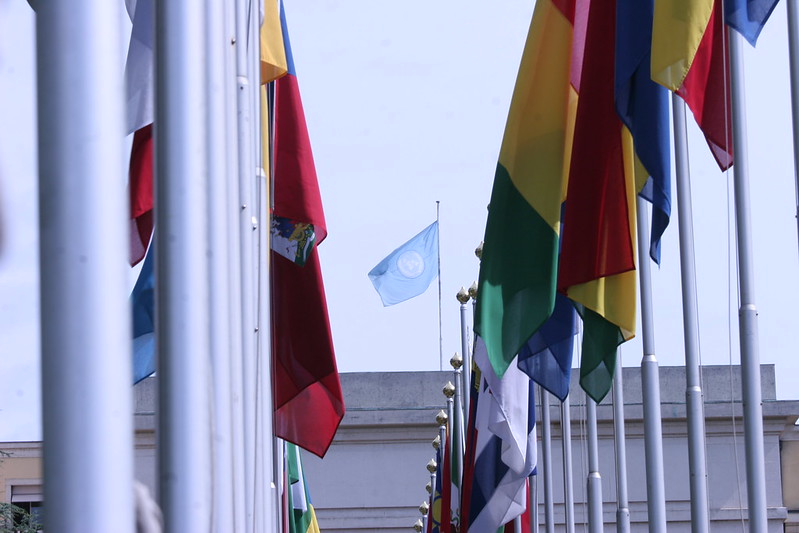
The international community urgently needs new tools, ideas and initiatives to meet the common threats and challenges faced by the United Nations’ 193 member countries. The world body’s 75th anniversary, marked on United Nations Day on 24 October, presents an opportunity to chart a path to the partnerships we need to meet the challenges we will face in the years and decades to come. In the wake of the Covid-19 pandemic—the costliest and most far-reaching crisis since World War II—the need for institutional renewal and recovery is obvious.
Among the most ominous threats and challenges, beyond pandemic disease, are a rapidly changing global climate, violent conflict and large-scale displacement in fragile states, and sophisticated cyberattacks. What these challenges have in common is that they are beyond the ability of any country to resolve on its own. International cooperation is crucial, but that cooperation is being jeopardised by a resurgence in nationalism which threatens the very structure of the international order built three-quarters of a century ago.
Rising nationalism raises a significant risk that the UN system’s structure and institutions, essential but in need of repair and rejuvenation, may instead be left to decline, decay and even collapse. Such an outcome would be tragic, not just for those institutions but for all of humanity.
We believe there is another path. To help promote cooperative responses to today’s most pressing global problems, we are delighted to lend our support to the Roadmap for the future we want and UN we need, presented last month to the president of the UN General Assembly at the UN75 Global Governance Forum. Having defended our countries’ foreign policies as their representatives in New York, and having shaped them at the helm of our respective foreign ministries, we know from experience that original ideas from external stakeholders can help move complex multilateral organisations towards positive-sum outcomes.
Individuals and organisations from across global civil society have an opportunity, during this year’s commemoration of the UN’s founding, to help create ‘The future we want, the United Nations we need’, the anniversary’s umbrella theme. The secretary-general’s Global Conversation has already engaged over a million people worldwide through surveys, formal polling and hundreds of dialogues. Such discussions and debates serve as a reminder that the UN system has, over the past several decades, offered lifesaving support to vulnerable people, safeguarded basic human rights, advanced sustainable development and prevented a Third World War.
If all member states act upon the UN75 Declaration properly and with the support of global civil society, they can nurture a renewed spirit of international cooperation with two mutually reinforcing goals: institutional strengthening and a robust, ‘green’ recovery from the pandemic.
In particular, we, alongside other partners, call upon world leaders to raise the ambition of the declaration’s 12 commitments. They should agree to augment each with carefully developed proposals and action plans to bolster institutional capacity, improve policy and strengthen public–private partnerships, all of which will be further developed in the follow-up report from the UN secretary-general mandated by the declaration.
We also advocate a world summit on inclusive global governance, as called for in the Stimson Center’s recent UN 2.0 report. To be held by September 2023, the summit would seek to upgrade and equip the global governance system to address major issues facing the international community, and to usher in a new compact with citizens to enhance and rebuild confidence in their multilateral institutions.
In the lead-up to this 2023 leaders’ meeting, two G20 summits, akin to those held in London and Pittsburgh to chart a way forward from the 2008 global financial crisis, should be convened in 2021, focusing on coordinated macroeconomic, social and environmental policies to promote a durable recovery from Covid-19. These discussions among the leaders of the largest economies should be synchronised, in turn, with a broader Covid recovery strategy that seeks the endorsement of all 193 UN member states and support from international financial institutions, the World Trade Organization and other global and regional bodies.
In 2015, when our Commission on Global Security, Justice and Governance presented its UN70 report, Confronting the crisis of global governance, both the headlines and trendlines foreshadowed the return of virulent nationalism, fuelled by surging migration, economic inequality and leaders who dehumanise others and seek to divide rather than unite. Five years on, enlightened leadership is needed more than ever, supported by ideas and political pressure from civil society worldwide. By reviving cooperation to meet today’s many challenges, we can ensure that ‘the future we want’, for today’s younger generation and all future generations, becomes the future we get.
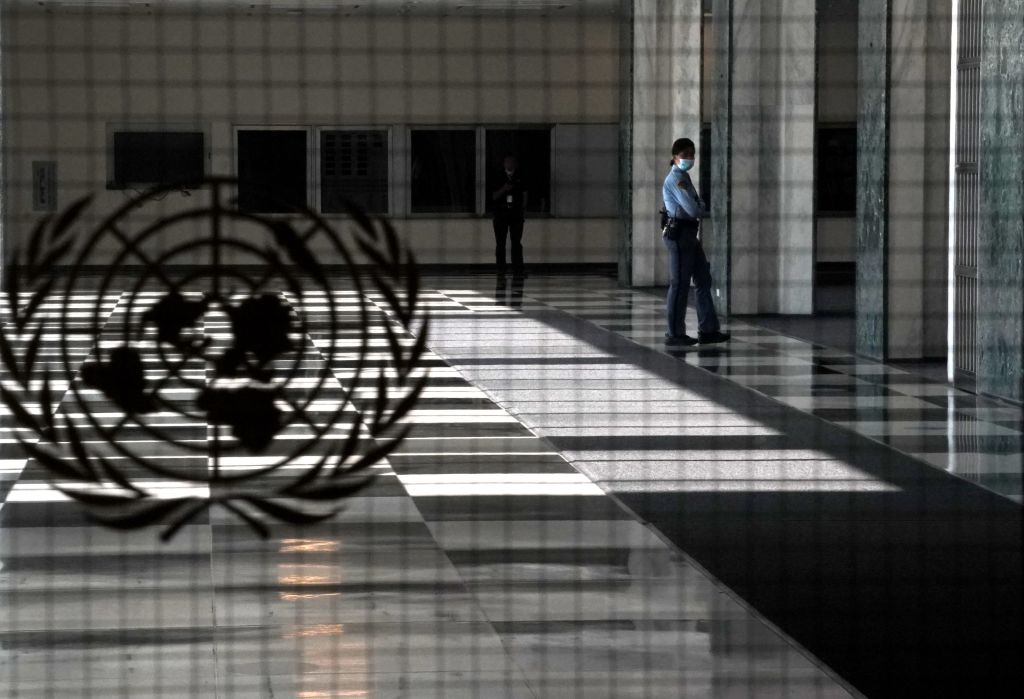
In any normal year, I would be in New York City now for the annual opening of the United Nations General Assembly. The event represents the greatest concentration of global policymakers in one place and is the high point on the diplomatic calendar. But this year is far from normal, and ‘UNGA week’ is going virtual with events held online—a familiar format for us all in recent months.
This is unfortunate for several reasons. It is the UN’s 75th anniversary, and one would have wished for a better way to mark the occasion. Moreover, the state of the world is such that the multilateral system, with the UN at its core, is being challenged like never before—and just when we need it the most.
Indeed, never has the supply of multilateral solutions been so scarce and demand for them so high. Every day we see how narrow nationalism and strategic rivalries, especially between the United States and China, are paralysing the UN Security Council and the wider international system. From climate change and arms control to maritime security, human rights and beyond, global cooperation has been weakened, international agreements abandoned, and international law undermined or selectively applied.
For Europeans, this is deeply unsettling. But the unfolding crisis of multilateralism is not a problem only for Europeans: everyone’s security and rights are in jeopardy. Phrases like the ‘multilateral system’ and ‘the rules-based international order’ seem vague and lack the ring of ‘America first’ or ‘take back control’. But they stand for something very concrete and real: the choice between peace and war, between free societies and closed ones, and between an economy built on sustainable development and one that fuels widening inequalities and runaway climate change.
A world governed by agreed rules is the very basis of our shared security, freedoms and prosperity. A rules-based international order makes states secure, keeps people free and companies willing to invest, and ensures that the earth’s environment is protected. The alternative—‘might makes right’—has been tried for most of human history, and its horrific record is the best argument for the multilateral system. Unfortunately, it is increasingly being tried again, with the results visible to all.
This is not the approach of the EU. We will continue to believe in and support the UN. We do so not just rhetorically, but also politically and financially, as well as diplomatically, by trying to act as a bridge-builder in the Security Council.
When others were trying to pull apart the World Health Organization at the height of the Covid-19 pandemic, it was the EU that led the negotiations resulting in an agreement to set up an independent inquiry into the origins of the coronavirus. We are also the biggest donor to the COVID-19 Vaccine Global Access Facility (COVAX), established to ensure that the world gets a reliable vaccine as soon as possible and that it is treated as a global public good.
The EU pays a quarter of the UN budget. It’s often said that Europe punches below its weight geopolitically. But in terms of multilateral engagement, it finances well above its weight.
With our crisis-management operations, we work hand in hand with the UN on stabilisation and reconstruction in many conflict zones, from the Sahel to the Horn of Africa, and from to the Balkans to the Middle East. In the toughest war zones and humanitarian crises, you will find the EU and the UN working together.
Europeans have pushed hard for an international climate agreement and do our best to keep it alive. We are relentless in trying to protect biodiversity, access to clean water, and other natural resources.
For us, these contributions are investments in global security and prosperity—and thus in our own security and prosperity. We know that we can be safe, healthy and secure only if our neighbours are too. What is true of individuals is also true of countries.
Even if we face strong headwinds, the EU will stay the course in support of finding common solutions. This if often difficult and tiring, but we are always ready to discuss how to make the system more effective, more legitimate and more fit for purpose; both with like-minded partners and those with whom we disagree. Multilateralism today must be different from that of the 20th century: power has shifted and the challenges are no longer the same.
Much of what will shape our future—cyberspace, data analytics, artificial intelligence, biogenetics, autonomous vehicles and much else—is emerging in a regulatory vacuum. We must fill it with agreed rules, norms and standards, and ensure they are applied—including in contexts where the major stakeholders are not governments.
The EU’s bottom line is this: reform should take place by design, not by destruction. We must revitalise the system, not abandon it. So, this week and beyond, we will uphold the spirit of the UNGA and defend multilateralism, which all countries so badly need. A world without the UN would endanger us all.
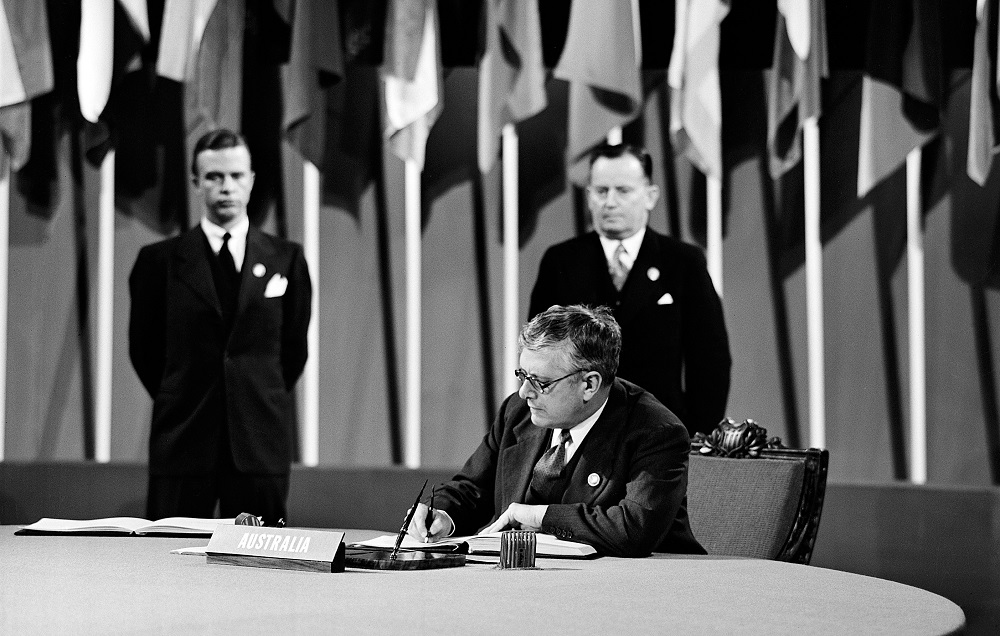
Watching mob violence in the streets of America, I recalled an encounter in Kosovo in 1999. Driving through the country one day in a UN vehicle, I stopped at the house of a man who, some months before, had been dragged from his house by Serbian paramilitaries and made to kneel on the dusty road and was poised for execution in front of his seven daughters.
It was at the height of the civil war in Kosovo, and the Kosovo Liberation Army and Serbian authorities were embittered foes. The shrill politics of extremes and the whip of war had already unravelled most of former Yugoslavia. Kosovo was the last chapter, and both sides were exacting revenge. Some of the same Serbian paramilitary groups that had committed crimes in Bosnia were marauding in the restive Yugoslav province.
A jeep-load of regular Serbian soldiers rounded the corner. An officer dismounted, arranged his men gun to gun against the paramilitaries and arrested the would-be executioner. ‘That soldier saw me for who I am’, said the man, while his daughters listened on. The Serbian officer hadn’t seen him as an Albanian, but as a father, a farmer and a man. That simple statement sits in sharp contrast to the multiplying tribalisms of pre-election America in 2020.
Moreover, the sentiments of this discreet scene are reflected in and magnified by the 20th century’s most edifying and vital document, the Universal Declaration of Human Rights—the founding ethical and legal tenet of our times. International law that has flowed from the declaration has served as a guarantor of safety and peace for billions of people, despite regular flouting by dictators and génocidaires. Our first rule, the foundation of the modern life, is that we see each other as human.
Australia was one of eight nations that negotiated and drafted the declaration under our chief negotiator, H.V. ‘Doc’ Evatt. There were also a Lebanese, a Chilean and a Russian (72 years ago, it was all men). China’s negotiator, Peng Chun Chang, believed that Europe’s Enlightenment philosophers and the notion of the universality of rights were in part the intellectual sprigs of the Confucian philosopher Mencius.
We forget that the UN was the child of humankind’s bloodiest conflict. The world was exhausted by the Second World War and the excesses of totalitarianism (Mao was still to come), so the UN was a liberal enterprise constructed to deal with matters of hard power through consensus and what the political philosopher Joseph Nye eventually termed ‘soft’ power. As the UN’s second secretary-general, Dag Hammarskjöld, famously said, the UN ‘was not created to take mankind to heaven, but to save humanity from hell’.
Lots of Australians have continued to work for the UN. On the ground and at the sharp end of that work, it’s often dangerous. My UN colleagues have been harassed, shot at, assaulted, bombarded, expelled, humiliated, raped and murdered. I’ve lost colleagues in accidents and to bombs, and one was strangled in his bed. Hammarskjöld died in a plane crash on a peace mission in Congo in 1961. We laud our armed forces, but almost never our unarmed forces, of which Australia has thousands already deployed.
The UN is a Tower of Babel, with all that that implies. Engaged in matters of soaring ambition, often you might labour prosaically alongside people with jarring cultures, or accents you don’t understand, or whose systems of government you fundamentally oppose. Yet, in conditions of stress and shared enterprise, great friendships are formed, lasting alliances are forged and a sense of human solidarity is amplified.
The UN’s bureaucracy is a network of improbable complexity. It’s easy to sneer at and very often frustrating, but, despite the towering aspiration of this malformed creature, it does produce gold. More than 100,000 troops serve in 14 peacekeeping missions. Agencies such as UNICEF, the High Commissioners for Refugees and Human Rights and the World Food Programme temper the misery of the most vulnerable.
The UN is the jack-of-all-trades repairperson we don’t like to think about. As with assumptions about electricity or water flows, or the absence of diseases like polio or smallpox, we ignore the power cables and pipes until the taps run dry and the lights go off, as it might have if the World Health Organization hadn’t largely functioned to coordinate a global response to Covid-19. In a world where the old pillars of vertical power alone are creaking with obsolescence and complex juvenile networks soak power up, the UN remains the best place to tackle global affairs.
Former Foreign Minister Gareth Evans knew the weaknesses and ‘exhilarating’ strengths of the UN. He helped negotiate what he called the most robust arms-control treaty on weapons of mass destruction—the 1997 Chemical Weapons Convention. After genocides in Rwanda, Srebrenica and Darfur, he was a proponent of the ‘responsibility to protect’ doctrine that, in theory (as Syria sadly demonstrates), is a red line when rulers try to eradicate their own people. International laws and norms protect us through the very act of negotiating those laws, as well as mutual vigilance over their observance.
Foreign Minister Marise Payne’s recent speeches flag a renewed Australian commitment to the UN. This reflects the pandemic’s revelation of our complex, interwoven global fragility, from our systems of health, welfare, security, transnational business (including our university industry), communications, pleasure-seeking and government to the fragility of our own bodies. Neat post–Cold War assumptions about a world order crafted from neoliberal economic and political triumphalism are dead.
Those assumptions were a bad and simplistic bet, and now we pay the debt. Two decades of expeditionary warfare in Iraq and Afghanistan that excluded a rising China and a moribund Russia bled the US of wealth and credibility. It also obscured the sickening of the international system we thought we knew. Yet America’s reaction to a bloodied nose and diminishing economic and military power while China rises and Russia rebounds has been a corroded commitment to the UN. That vacuum has been logically filled by China, now the UN’s second largest contributor, with a new influence in agencies such as the WHO.
Michael Ignatieff, the Canadian politician and intellectual, has said that the political question is always, ‘Who will protect me now?’ In an exponentially complex world, how do those of us distracted by raising children and paying mortgages answer that? Newly risen populists exploit the Ignatieff question and our distraction with a facile bait and switch. Because no single government can provide solutions to universal complexity, populists bait us with fear of our present and switch in a fear of other tribes. Fear leads to the politics of extremity as we stop seeing people for who they are.
Australia has much to gain from a robust UN and much to lose from its impairment. To use just one example of complex challenges, the world must have refreshed migrant and refugee agreements that account for huge and permanent flows of displaced people in the 21st century, which is quite different from the era of refugee treaty instruments of 70 years ago. Australia must balance the management of our sovereign borders and the intakes we need to keep us prosperous with our liberal humanist obligations to those we recognise as equally human, but out of luck.
Covid-19 is just a single adverse event. Unlike the misfortune of an earthquake, a three-month fire season, a tsunami or low-level Middle East wars, this once-in-a-century event has provided fresh insight into the complex civilisational impact that a contagion of greater transmissibility and lethality, or a solar flare or asteroid, or an epic nuclear disaster, or a human-made bacteriological or chemical storm (such as the widespread dispersal of Russia’s chemical agent Novichok) would have on life on earth.
The relatively moderate impact of Covid-19 has alerted us that our neatly organised lives can be switched off in a blink. The great post-pandemic challenge will be to build new resilience into the globalised systems of consensus—the ‘rules-based order’—that we increasingly rely on to physically protect us. This encompasses agreements on nuclear weapons proliferation, climate change, international crime and extremism, space and cyber warfare, corruption and finance, water resources, fishing, and virtual propaganda battles fought over social media outlets that leave our very grasp of reality spinning.
A sense of reality in a complex world is critical. Good propaganda, as Nye once said, is not propaganda, and power and resilience in the 21st century are closely related to ‘whose story wins’. You can’t speak authentically of peace when you promote war, or free trade when you stymie it, or human rights when you cage your own populations en masse. People will eventually call you out. Middle-power countries of modest ambition, whose rhetoric is matched by fact, must constrain our leviathan trade and alliance partners through multilateral organisations in order to shape the world for our own security.
Australia is a UN poster child with a winning story, and it’s not just about Kylie Minogue or Paul Hogan. Our story is about an authentic 21st-century national resilience, as evidenced by our systemic and political management of the Covid-19 contagion. This resilience includes luck, such as iron ore deposits, but also consensus politics spawned by our social temperament, an educated population, a great health system, a first-class bureaucracy, and the fruits of an immigration flow that has fuelled our economy and hardwired us to every other continent. We’re close to what we preach.
Yet we also lag. Australia has a huge corps of Australians who have quietly and expertly built resilience into the international system over decades. Yet this highly trained network is unmapped, scattered and currently untapped for its collective soft-power intelligence and sharp-power impact. In the dozens of conflict and disaster zones I’ve been involved with through multiple UN agencies, I was contacted just once by an Australian embassy when there was a perceived and very public threat to life.
In this line of work, you find yourself exposed to disease, thirst, mischance and lots of people with twitchy trigger fingers, but working for the UN or in the multiplying international agencies such as ActionAid or the International Rescue Committee is not an act of altruism. You’re the face of your country, at a coalface of international cooperation, performing exciting work, imbued with meaning, and often with real and immediate impact on lives out of luck.
Less understood is the impact this work has on global resilience and, ultimately, the safety, security and resilience of the Australian homeland.
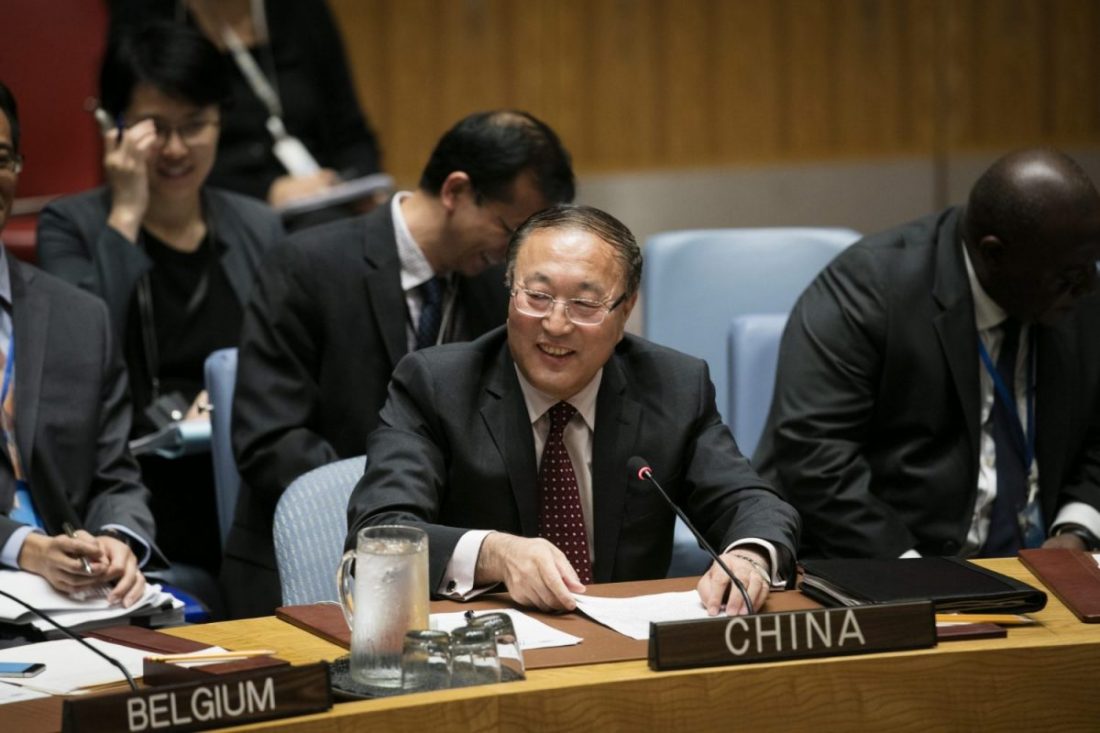
Chinese President Xi Jinping is urging China to ‘lead the reform of the global governance system’ and to ‘actively participate in the formulation of international rules’. Such statements suggest that we now should be able to gain better insight into Beijing’s vision for the world order. What can we learn from its efforts to reshape how the United Nations operates?
China’s active engagement is evident within many well-established international organisations, and it has created new global and regional institutions. But the UN is a particular focus of Chinese attention. Over the past five or so years, Beijing has provided the UN with significant resources and—as its confidence and influence grows—now seeks higher-level positions within the secretariat and in specialised agencies. It is also working to shape UN norms and procedures.
These efforts have increased alongside the UN’s evolution into an organisation that promotes a redefinition of security to include human protective elements such as the protection of civilians in armed conflict, the ‘responsibility to protect’, and the shielding of those who endure conflict-related sexual violence.
This multilateral setting does impose structural and image-related constraints on China’s behaviour. The UN has an interdependent three-pillar structure comprising international peace and security, development and human rights. As UN secretaries-general constantly declare, attention to all three elements is the best means of achieving the organisation’s core objectives—and that formulation is difficult to overturn. A China that seeks to resist or change the balance among these three interdependent elements has its work cut out.
Beijing’s main method of addressing UN attachment to the three-pillar approach is mobilising support for an alternative triadic model. This model accords a central role to strengthening the government in power, promoting domestic social stability and focusing on long-term economic development as the ‘master key to solving all problems’, as Xi put it in 2017. Compared with the UN formulation, this most obviously downplays attention to human rights.
China promotes this model rhetorically and increasingly by behaviour. Beijing articulates positions that support a more traditional perspective on security and a narrow interpretation of which events constitute a threat to international peace and security. It would prefer to restrict the range of items that make it onto the Security Council agenda. In Beijing’s view, the Security Council should follow the principle of ‘national ownership’ by addressing accountability issues through domestic judicial institutions and seeking host state consent before any external intervention.
China’s promotion of social stability manifests itself in statements that indicate it is the duty of governments to maintain public order, that social media needs to be controlled and that non-governmental actors need to be ‘guided’ by the government in power.
The development arm of China’s triadic formulation is given particular prominence. Beijing argues for a structural focus on economic development as the root cause of conflict. It perceives this as essential in UN attempts to prevent, manage or resolve conflict, and so advance human protection.
For Beijing, the UN’s women, peace and security agenda becomes a question of supporting individual states to empower women by increasing their socioeconomic opportunities. In China’s view, UN capacity building for fragile states unable or unwilling to prevent egregious instances of civilian harm should not unduly emphasise reforming the security sector or developing the rule of law and human rights institutions. Instead, it should focus on socioeconomic development and offer the material assistance that the state in question determines is needed.
In the Human Rights Council resolutions that China sponsored between 2017 and 2019, Beijing hammered home its belief that rights are best guaranteed when development is given a foundational role. After economic development is achieved, other rights might eventually flow.
To advance UN member-state support for these beliefs, Beijing leverages its identity as a post-colonial state and its position as the leading economic partner of many UN members. It draws to its side governments that prefer a conservative UN that operates on a constrained interpretation of its core mandate and acts as an inter-state governance organisation. Beijing is also aided by the relative decline in Western influence and the setbacks in enacting the UN’s complex human protection agenda.
Nevertheless, some of these Chinese propositions attract resistance. The argument that economic development is unlikely to be sustained without accountable political institutions and independent national human rights institutions still carries weight. This is reflected in the UN’s 2030 agenda for sustainable development. It is also reinforced by Beijing’s own frequent resort to repressive measures, regular occurrences of social instability in the country, and weaknesses in addressing domestic governance problems during its economic transformation. UN actors recognise that the absence of independent civil society perspectives is detrimental to sustainable outcomes.
China’s attempt to return the UN to a body that reflects a minimalist and pluralist conception of world order remains a complex and arduous task. Its accomplishment would mean a world that draws directly on what Beijing projects as its own experience since ‘reform and opening’—and incidentally would enhance the security of the one-party regime in China itself. For the UN, it would mean reducing the body to a resource rather than a leader or partner in dealing with the serious collective-action problems of our time.